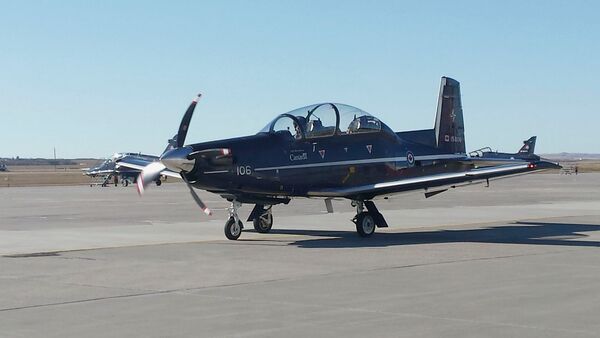
The Beechcraft CT-156 Harvard II, better known as the T-6A Texan II, that the Royal Canadian Air Force uses for some of its pilot training. The Texans will be replaced by Pilatus PC-9s under the new FAcT deal. (Janes/Pat Host)
The Canadian government has awarded SkyAlyne a CAD11.2 billion (USD8.1 billion) contract for the Future Aircrew Training (FAcT) project to train Canadian pilots and aircrew, the country's Minister of National Defence Bill Blair announced at the CANSEC show on 29 May.
Training under the FAcT contract, which is scheduled to begin in boreal spring 2029 and last for 25 years, is to encompass basic and advanced flight training for Canada's aircraft and helicopter pilots, as well as training for air combat systems officers and airborne electronic sensor operators.
Basic flight training is to take place in Moose Jaw, Saskatchewan, using a fleet of 23 Grob G 120TPs and seven Beechcraft King Air 260s. Advanced flight training for future jet pilots will also be conducted in Moose Jaw using 19 Pilatus PC-21s. Rotary-wing pilots will undergo advanced training in Southport, Manitoba, on a fleet of 19 Airbus H135s, while the systems officers and sensor operators will be trained in Winnipeg, Manitoba, aboard three DeHavilland Dash-8s modified with mission training systems in the cabin. All involved aircraft are to be newbuilds, SkyAlyne told Janes on 29 May.
Advanced fighter training is not included in the contract, and the Department of National Defence told Janes in March that fighter pilots will undergo advanced training at the Euro-NATO Joint Jet Pilot Training (ENJJPT) programme at Sheppard Air Force Base (AFB), Texas, and the International Flying Training School at Decimomannu, Italy, until acquisition of a fighter lead-in trainer no earlier than 2028.
Looking to read the full article?
Gain unlimited access to Janes news and more...







